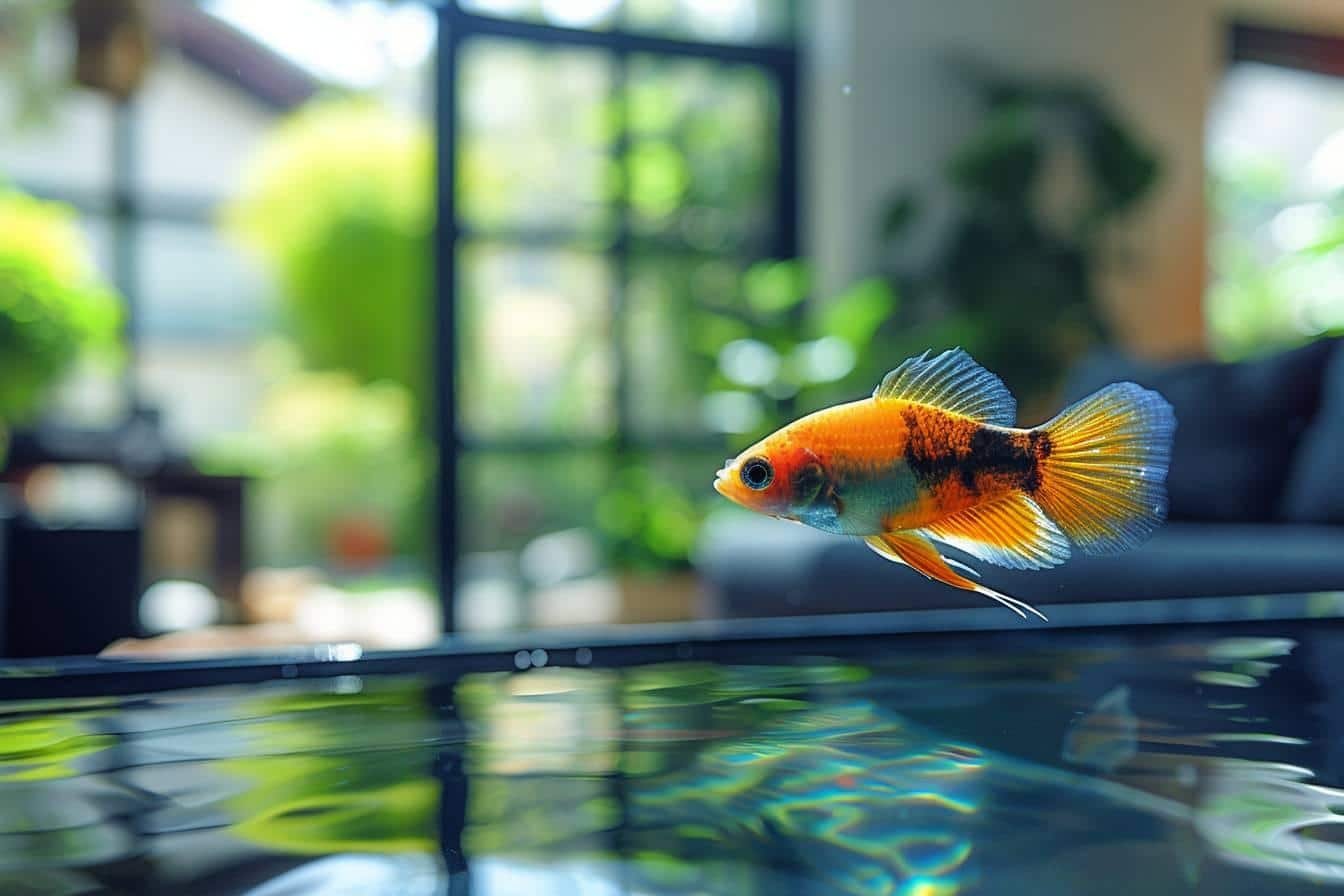Le telescope fish is an exciting variety of goldfish that attracts attention with its prominent, bulging eyes. As a pet store floor manager, I've had the opportunity to observe these unique creatures and understand their specific needs. Although some aquarists are tempted to keep a fish telescope aloneHowever, it's important to understand that these fish have special requirements in terms of habitat and care. In this post, we'll explore the essential aspects of caring for a telescope fish and ensuring its well-being.
The ideal habitat for a telescope fish
When it comes to housing a telescope fish, the size of the aquarium is crucial. These fish need space to swim comfortably and explore their environment. An aquarium of at least 50 to 60 litres is needed for a single individual. However, it is important to note that these fish are social and prefer to live in groups.
Community life
Contrary to what you might think, a fish telescope alone will not be happy. These social creatures enjoy each other's company. Ideally, you should keep a group of at least 2 individuals, but a group of 5 would be even better. I've noticed that telescope fish in groups are more active and seem to thrive.
Water conditions
Water quality is vital to the health of these delicate fish. Here are the parameters to be respected:
- Temperature: between 17°C and 28°C
- pH: between 7 and 8
- Hardness (GH): between 5 and 15
Good filtration and oxygenation of the water are essential. Don't forget to change the water regularly, around 30 to 50% per week. It's a bit like tidying up their house - it does them a world of good!
Aquarium layout
The telescope fish's prominent eyes are fragile. So avoid sharp objects in the aquarium that could injure them. Opt for decorations with rounded edges and plants with soft leaves. What's more, these fish are sensitive to light. Place the aquarium in a relatively dark place for their comfort.
Feeding and health of telescope fish
Taking care of a fish telescope alone or in a group requires special attention to its diet. These fish are omnivores, but they have specific nutritional needs.
Balanced diet
The diet of telescope fish should contain a significant proportion of plants. Here are a few options:
- Poached spinach
- Lightly blanched salad
- Seaweed dried
These plant-based foods are essential for preventing digestive problems. Don't hesitate to vary your menus! I like to say that it's like preparing a little vegetarian buffet.
Common health problems
Telescope fish are subject to certain specific health problems:
| Problem | Symptoms | Prevention |
|---|---|---|
| Swim bladder problems | Difficulty swimming, abnormal buoyancy | Balanced diet, good water quality |
| Exophthalmos | Abnormal swelling of the eyes | Clean water, avoid stress |
Regular monitoring of your fish will enable you to detect these problems early on. Don't hesitate to consult a specialist vet if you have any doubts.

Characteristics and features of the telescope fish
The telescope fish, or Carassius auratus is a fascinating member of the Cyprinidae family. Originally from China, this fish has captured the hearts of aquarists the world over.
Appearance and size
These fish come in an impressive variety of colours: red, orange, white, black, blue and even calico. Their adult size can vary between 3 and 25 cm. It's like having a little rainbow swimming in your aquarium! I once had a black telescope fish that grew to almost 20 cm, which was impressive.
Behaviour and longevity
Telescope fish are generally calm and swim mainly in the middle zone of the aquarium. With good care, they can live between 15 and 20 years. It's almost like having a long-term pet! How can you tell the difference between male and female molly fish? is a question that many people ask, but for telescopes, the distinction is less obvious.
The bottom line is that caring for a telescope fish, whether alone or in a group, requires attention and patience. These unique creatures deserve all our respect and care. As an avid aquarist, I find that observing these bulbous-eyed fish is a constant source of wonder. Don't forget that every fish has its own personality, and over time you'll get to know the peculiarities of your little aquatic companions. So, are you ready to dive into the telescope fish adventure?
